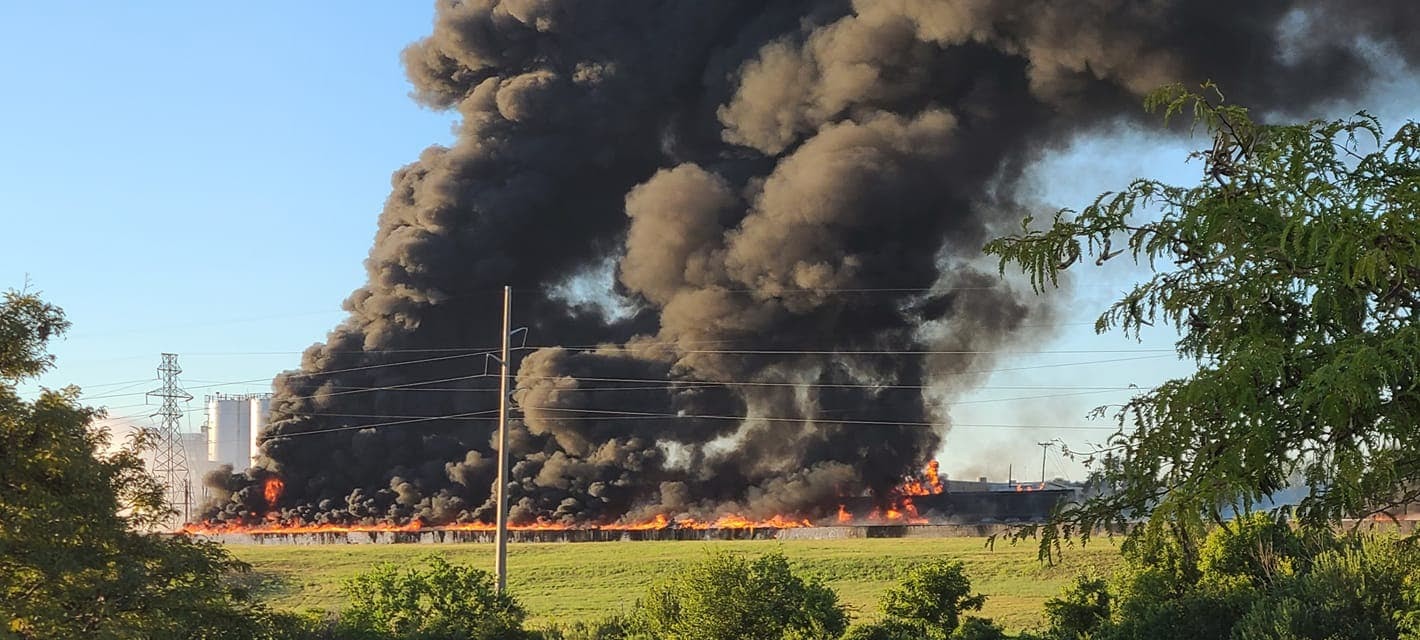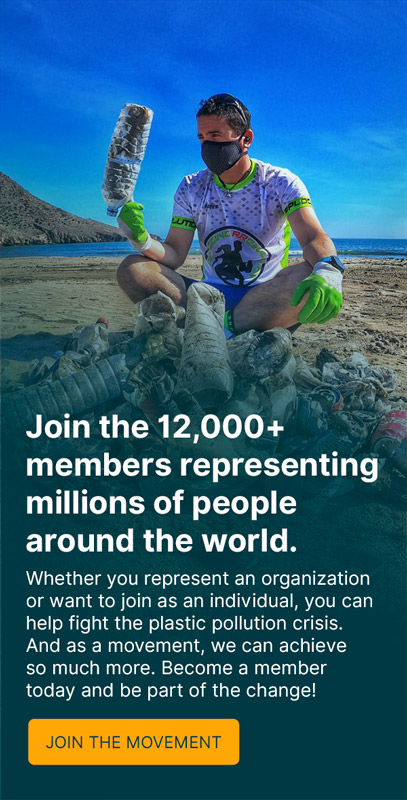August 20, 2020
A massive fire at the Poly-America Facility in Grand Prairie, Texas continues to smolder more than 36 hours after causing a regional emergency. Community advocates and Break Free From Plastic movement leaders call for the closure of the facility and all similarly-dangerous plastic production facilities. Thick pillars of black smoke from the burning of toxic polyethylene products led officials to urge anyone with respiratory issues to remain indoors while firefighters sprayed gallons of foam containing perfluoroalkyl and polyfluoroalkyl substances (PFAS chemicals) to contain the blaze.
This is the second inferno in recent memory at the Poly-America Facility. “It was about 32 years ago, same exact scenario. I don't remember what started it that night. We had bad storms as well, same as this one,” said Bill Murphy, Assistant Chief of Operations with the Grand Prairie Fire Department. “It's going to be at least a two-day operation out here before it's completely extinguished."
The only way to stop the burning of these toxic chemicals is to stop producing them in the first place. In recognition of the urgent need for systemic change, local leaders and Break Free From Plastic movement members offer the following statements responding to the Policy-America fire and pointing the way forward to a world free from plastic.
###
Last night a fire broke out at a plastics facility, and no one had any idea. It’s frustrating feeling trapped, surviving and watching news updates, all compounded by a global pandemic. Our state leads the nation in coronavirus cases. We’re trying to be safe through a pandemic only to know that now a fire is blazing outside. Firefighting foam has leached into North Cottonwood creek -- how is that controlled? What will the aftermath look like? What is the danger present in our bodies, air and local environment? Poly-America is devastating our most vulnerable communities during a global pandemic. The air can’t be safe. We are not safe. Where do you go when you cannot go home? - Ramon Mejía, Anti-Militarism National Organizer, Grassroots Global Justice Alliance (GGJ)
“This is a dramatic and frightening example of why we must reduce our dependence on toxic plastics. The plastics industry has targeted Texas to expand dangerous facilities like this one to produce more unsustainable single-use products. Incidents like this remind us that we must transition to a cleaner economy and protect our health and environment from plastics. Our hearts go out to the residents of Grand Prairie and neighboring cities who live near this fire. Please keep your families safe and stay tuned for updates from public officials. We wish you and our first responders the best.” - Corey Troiani, Senior Strategy Director, Texas Campaign for the Environment
The toxic plumes unleashed by the fire at the Poly-America plant are a devastating reminder that plastics are fossil fuels in another form, and that they pose threats to human health, the environment, and the climate all along their lifecycle, from production through to disposal. It's the people living in fenceline communities--many of them Black, indigenous and people of color--who bear the greatest risks from the plastic industry and the fossil fuels that feed it, due to daily exposure to pollution as well as the ever-present threat of accidents like this. - Nikki Reisch, Director of the Climate & Energy Program, Center for International Environmental Law (CIEL)
Whether it’s burned in an incinerator after hauling trash just one time or by accident at a production facility, the lifecycle of a plastic bag is toxic from beginning to end. Communities whose lungs are already ravaged by a lifetime of air pollution are now more vulnerable to COVID. It is past time to ban these single-use plastics and shift towards equitable and healthy solutions for a circular, zero waste world. - Denise Patel, U.S. Program Director, Global Alliance for Incinerator Alternatives (GAIA)
Press contact
Brett Nadrich, US Communications Officer, Break Free From Plastic
+1 (929) 269-4480, brett@breakfreefromplastic.org



